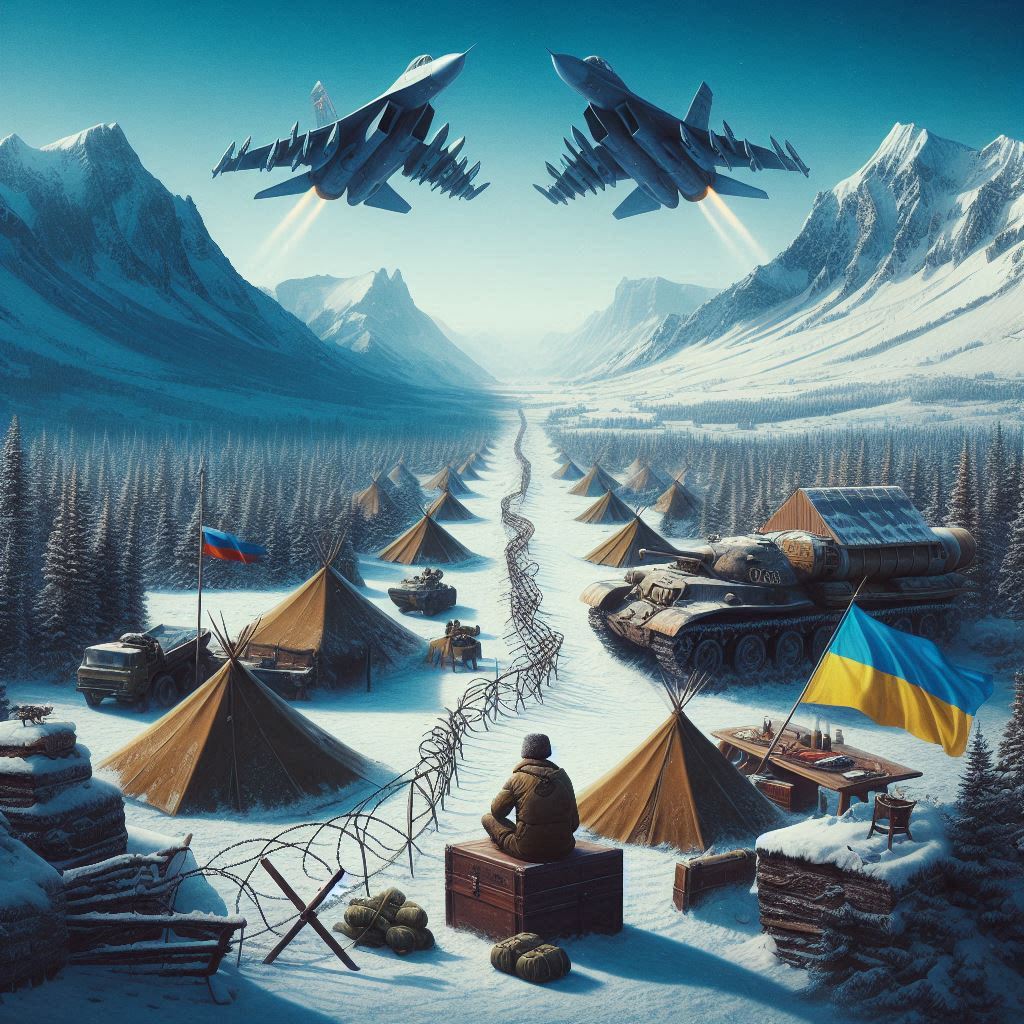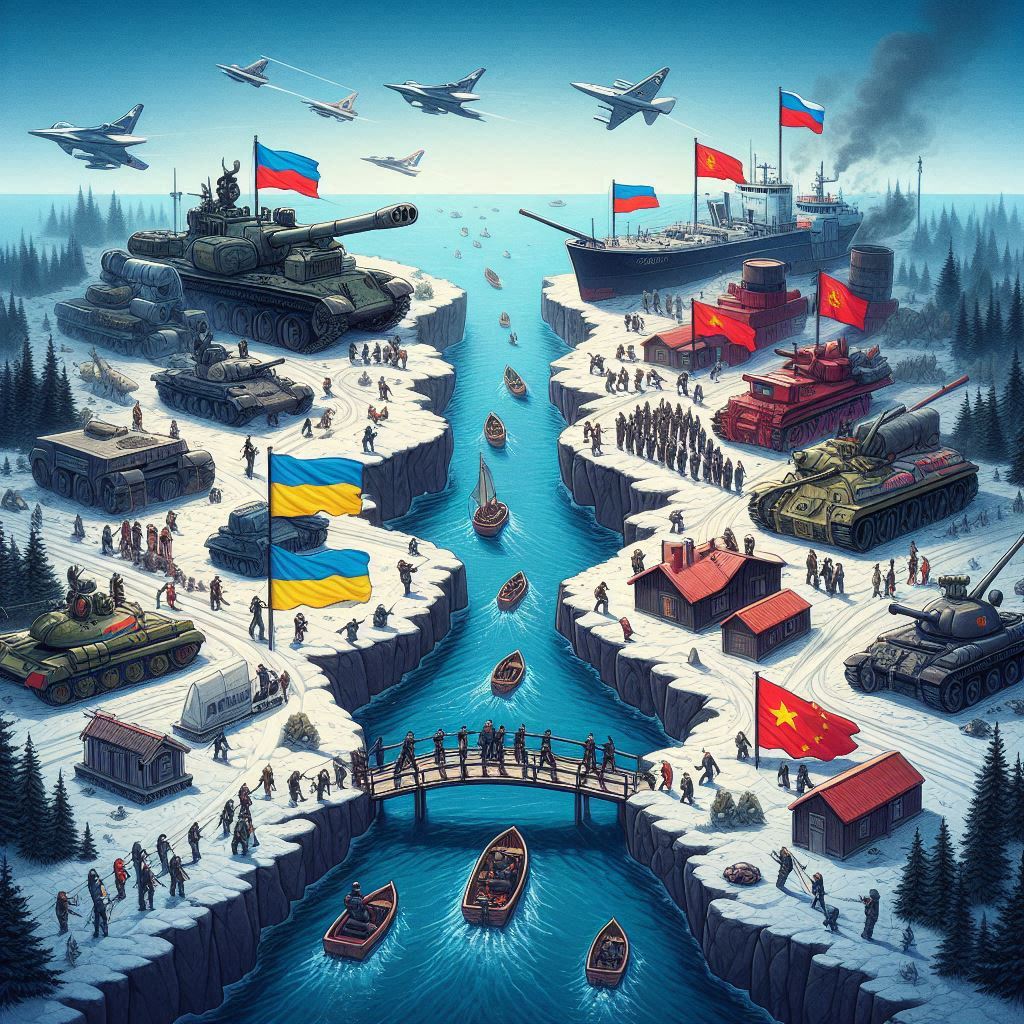烏克蘭成功佔領俄羅斯的庫爾斯克和斯別爾哥羅德州
烏克蘭在2024年8月6日展開對俄羅斯領土的突襲行動,反攻行動第二週,烏軍即宣稱控制大約1000平方公里的土地,並佔領超過74個城鎮和村莊。這表示烏克蘭試圖在戰略上取得更多優勢,並希望在長期消耗戰中對俄羅斯施加更大的壓力。
透過加強對俄羅斯領土的攻擊,削弱俄軍的防禦能力並破壞俄羅斯國內的穩定。庫爾斯克(Kursk)和斯別爾哥羅德州(Belgorod)先後宣佈進入緊急狀態,顯示出烏克蘭的突襲行動已成功在俄羅斯邊境地區造成實質性的恐慌和不安。數十萬居民的撤離也反映出烏克蘭的戰術目標之一是對俄羅斯境內的後勤和民用基礎設施進行打擊,以削弱俄方的應戰能力。
此外,這次突襲行動不僅在軍事上對俄羅斯造成壓力,也有明顯的心理戰目的。通過進攻俄羅斯本土,烏軍試圖打破俄羅斯國內長期以來的「安全地帶」心理,讓俄羅斯民眾感受到戰爭的威脅,從而加劇國內的不安情緒和社會動盪。這種策略可能會削弱民眾俄羅斯政府的支持基礎,尤其是在國內經濟和基礎設施承受壓力的情況下,人民對持續戰爭的耐心可能會減少。
在長期的戰爭中,烏克蘭也希望通過控制邊境地區來爭取更多的戰略緩衝區,這不僅有助於保護其自身領土免受俄羅斯的反攻,還可能為進一步的軍事行動提供跳板。這次的反攻行動顯示出對時間的掌控和戰場局勢的靈活應變,意圖在西方援助持續的背景下加快取得更多的領土勝利,從而增加在未來談判中的籌碼。
從戰爭的後續影響來看,會使戰事進一步升級,特別是俄羅斯會採取更強硬的報復行動,包括加強在邊境地區的防禦部署,甚至擴大對烏克蘭城市的空襲。此外,烏克蘭在西方的支持下能否維持長期的進攻態勢也是一個關鍵問題。西方國家是否會繼續提供足夠的軍事和經濟支持,以及俄羅斯是否會尋求更多的外部援助,將直接影響戰爭的發展進程。隨著戰事向俄羅斯本土擴展,俄羅斯民眾會更加質疑政府的戰爭策略和領導能力,這可能為俄羅斯內部的政治變革帶來契機。特別是在邊境地區持續處於戰爭威脅之下的情況下,對普京政權的支持可能會出現動搖。
總結來看,烏克蘭的目的在於通過對俄羅斯領土打擊來削弱俄方的軍事實力,破壞其國內穩定,同時增強自身在國際談判中的優勢。然而,這也導致戰事進一步升級,並為戰爭未來的走向帶來更多的不確定性。
On August 6, 2024, Ukraine launched a surprise assault on Russian territory. In the second week of this counteroffensive, Ukrainian forces claimed control of approximately 1,000 square kilometers of land and over 74 towns and villages. This suggests that Ukraine is seeking to gain greater strategic advantages and aims to apply increasing pressure on Russia in a prolonged war of attrition.
By intensifying attacks on Russian territory, Ukraine seeks to weaken Russian defenses and destabilize the country internally. The declarations of emergency in both Kursk and Belgorod following these assaults indicate that Ukraine's actions have successfully caused significant panic and unrest in the border regions. The evacuation of hundreds of thousands of residents further underscores Ukraine's tactical objective of targeting Russia's logistics and civilian infrastructure to reduce its ability to respond effectively.
Additionally, this offensive is not only designed to exert military pressure on Russia but also serves a clear psychological warfare purpose. By striking Russian soil, Ukrainian forces aim to shatter the long-standing sense of "safe haven" within Russia, making the public feel the direct threat of war. This, in turn, could heighten internal anxieties and social instability. Such a strategy might erode public support for the Russian government, especially as the country's economy and infrastructure come under increasing strain, potentially reducing the population's tolerance for the continuation of the war.
In the long term, Ukraine also seeks to secure more strategic buffer zones by controlling border areas. This not only helps protect Ukrainian territory from Russian counterattacks but may also provide staging grounds for further military operations. The counteroffensive demonstrates Ukraine's ability to manage time and adapt flexibly to the evolving battlefield situation, aiming to achieve more territorial gains in the context of ongoing Western aid, thereby increasing its leverage in future negotiations.
In terms of the broader impact, this assault could escalate the conflict further, particularly if Russia resorts to stronger retaliatory measures, such as reinforcing defensive positions along its borders or expanding airstrikes on Ukrainian cities. A key question remains whether Ukraine can sustain its offensive momentum in the long run with continued Western support. The extent to which Western nations continue to provide sufficient military and economic aid, and whether Russia seeks additional external assistance, will directly influence the course of the war.
As the conflict expands into Russian territory, the Russian public may increasingly question the government's war strategy and leadership capabilities. This could present opportunities for internal political changes in Russia, especially as the border regions remain under the constant threat of war, potentially undermining support for Putin's regime.
In conclusion, Ukraine's objective is to weaken Russia’s military capabilities and disrupt its internal stability by attacking its territory, while also strengthening its position in international negotiations. However, this could further escalate the conflict and introduce more uncertainty regarding the war’s future trajectory.
.jpg)


照片:DALLE3
- 1
- 2
- 3
- 4
